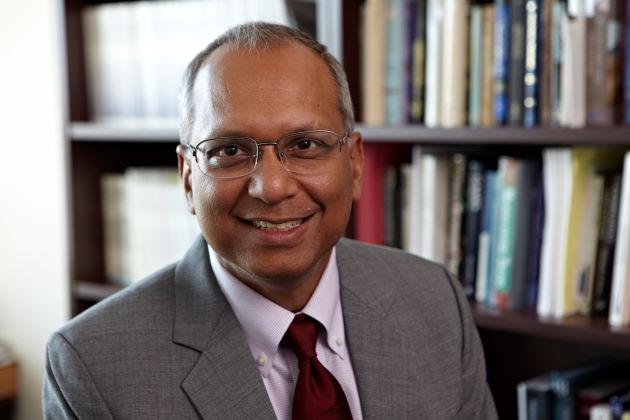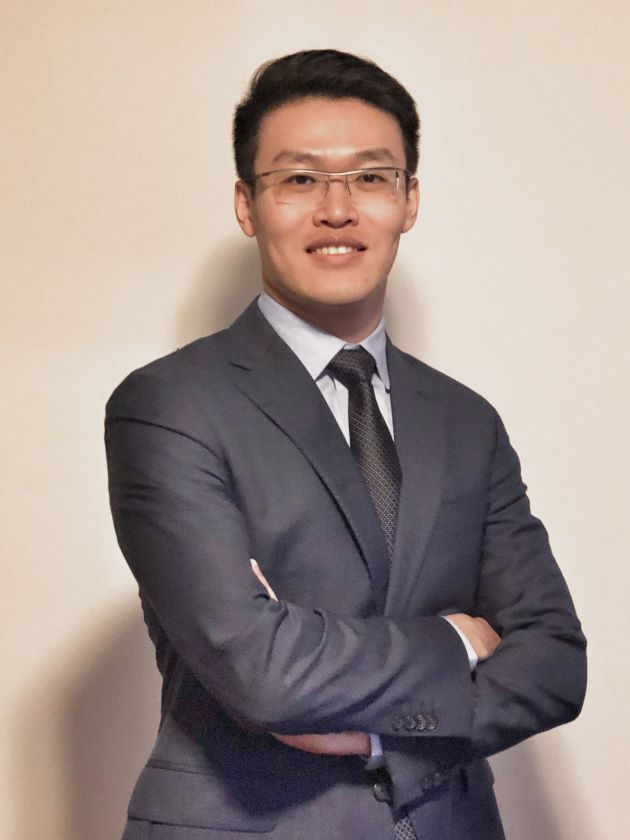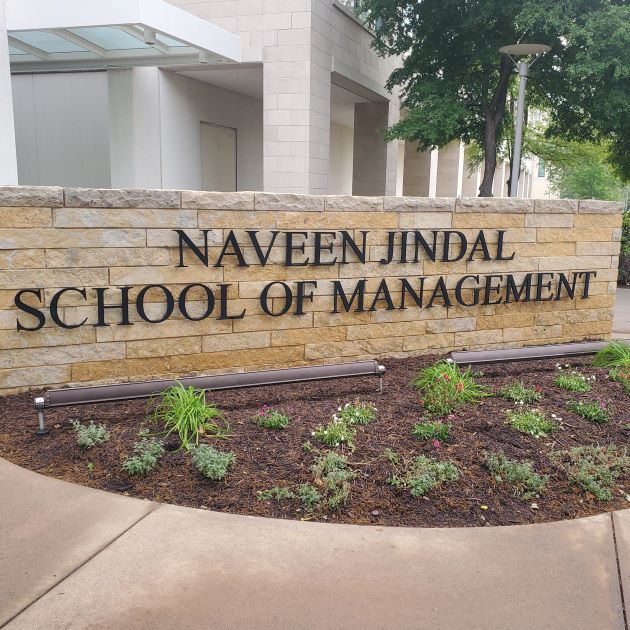Yingdong Mao, PhD student, Management Science with a finance concentration, took home the top prize—and a better sense of preparedness when it comes to communication
Knowing numbers is one thing. Being able to explain them is another.
The annual Three-Minute Dissertation competition at the Naveen Jindal School of Management, partly patterned after the University of Queensland, Australia competition, shows researchers how to turn research into an elevator pitch, one that can help them in everything from a job interview in academia or the private sector, to an appeal for seed funding.

“It’s amazing how difficult it can be to take mathematics and make it into a talk anyone can relate to,” said Dr. Sumit Sarkar, director of the PhD Programs and a professor in the Information Systems Area at the Jindal School. “The inability to communicate your work can cost you throughout your whole career. Imagine you have all this data you know is valuable but now you have to pick and choose. You really want to have made that choice beforehand, not when you are in the middle of an interview and will maybe have trouble articulating it. This is about succinctness and being prepared.”
Undergraduate honors students are the first audience for participants in the competition, providing feedback before PhD area coordinators select one finalist from their respective areas. A PhD Committee then chooses who will be the three top finishers.
Having the competition be on video instead of in person can be a plus in that more interviews than ever are being done by video, even sometimes where a candidate is sent questions and they give answers in a video without talking to a live person. The competition gives students needed practice in getting camera-ready both visually and vocally, where the volume and pitch of voice and gesticulations may need to be adjusted for a visual medium.

Yingdong Mao, PhD student, Management Science with a finance concentration, who won the competition, found an engaging spot near a full window for natural light for his video and used part of his opening to jest that we would all be billionaires if we could predict the future. He proceeded to explain that options are forward thinking, defined options contracts and then introduced that his research focused on option prices variation around microeconomic events. Throughout his video, Mao was enthusiastic, used his hands, not just his words, to give his presentation, and helped the viewer to understand what kind of instructor and employee he might be.
Mao said the experience has added confidence to his goal of a career in academia.
“It’s challenging to figure out how to take complex research and make it into a three-minute talk,” he said. “You also don’t just have to think about what you’re saying but also how you’re saying it. You need to think about how you are coming across. It helped me to feel more comfortable so that when someone asks me about my research, I’ll feel that much better about talking about it. Who knows how many times I’ll be explaining research in years to come? This competition reminds [me] that verbal communication is a skill, just like research is.”
Sarkar has been the coordinator for the competition—which is a requirement for Jindal School PhD students—for several years now and has seen a strong positive effect on PhD students.
“What seems to be consistent for those who do well in the competition is remembering that communication is about connection,” said Sarkar, who estimated that between 15 and 20 PhD students participated in the competition, which is sponsored by Dr. Hasan Pirkul, Caruth Chair and Jindal School dean. “You can’t just give numbers but really have to think about what people respond to. Those that don’t do well in the competition benefit from learning here, where JSOM faculty can work with them to improve. I think some are nervous about an interview situation and this competition can be a conversation starter on how to do better.”
Sarkar also said the initial feedback of undergraduate students is helpful for the very fact they have less experience—because the competition is geared toward getting through to a general audience. “Communication is often about repetition,” he said. “You need to be able to stand behind your work with confidence and sometimes that can only happen through experiences like this competition.”
With prizes of $500, $300 and $200, these were the three top finishers in the competition:

Winner: Yingdong Mao, Finance
First Runner-up: Reza Roshangarzadeh, Marketing
Second Runner-up: Ammon Butcher, Accounting





